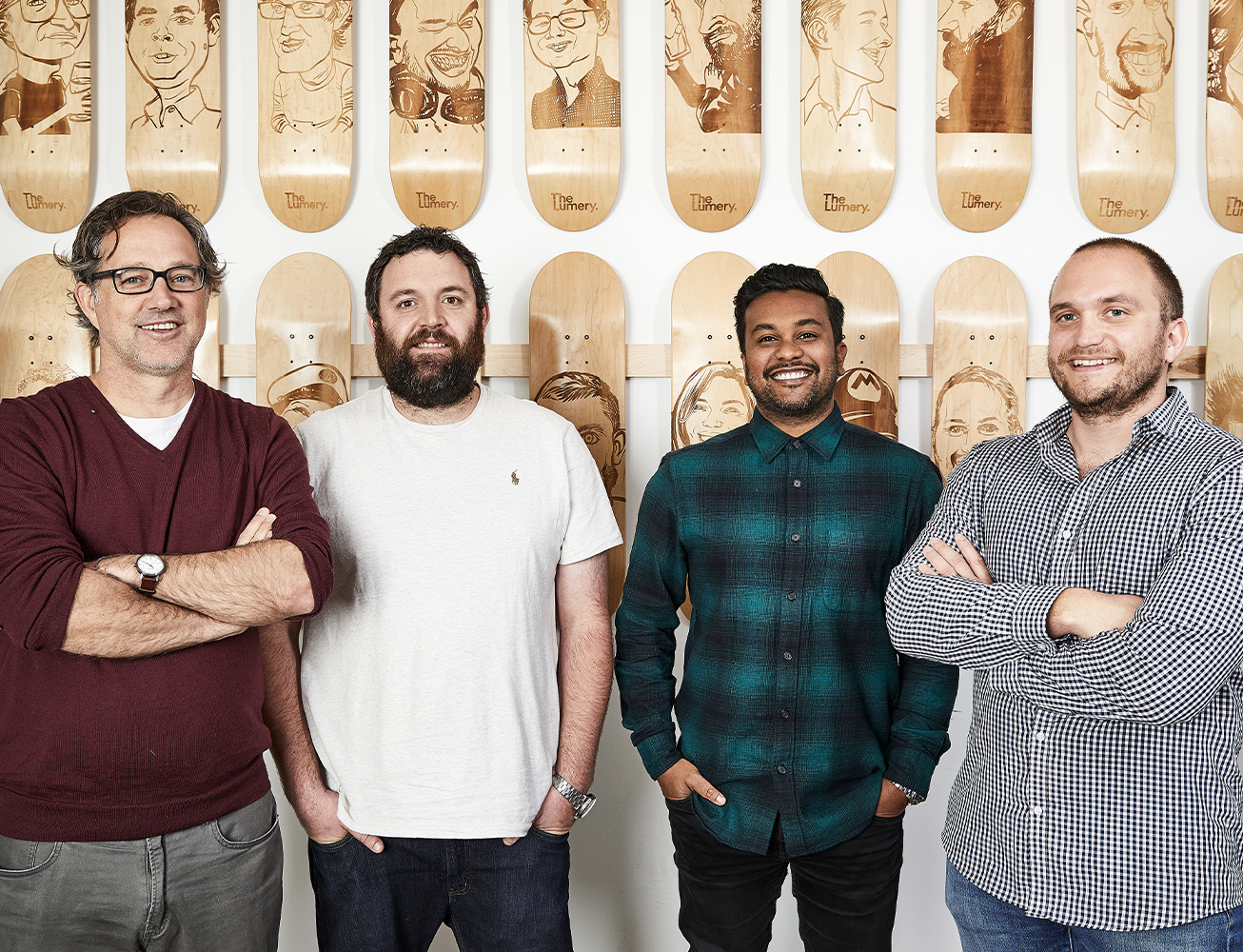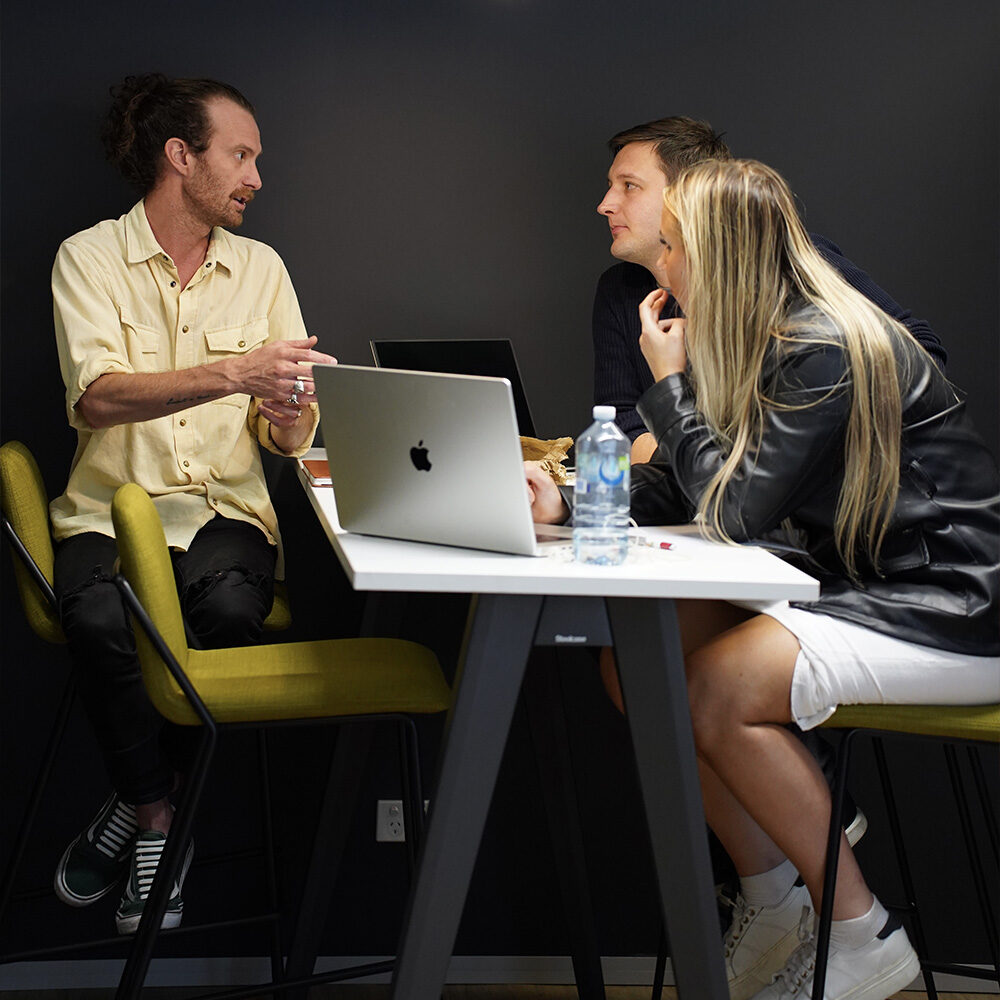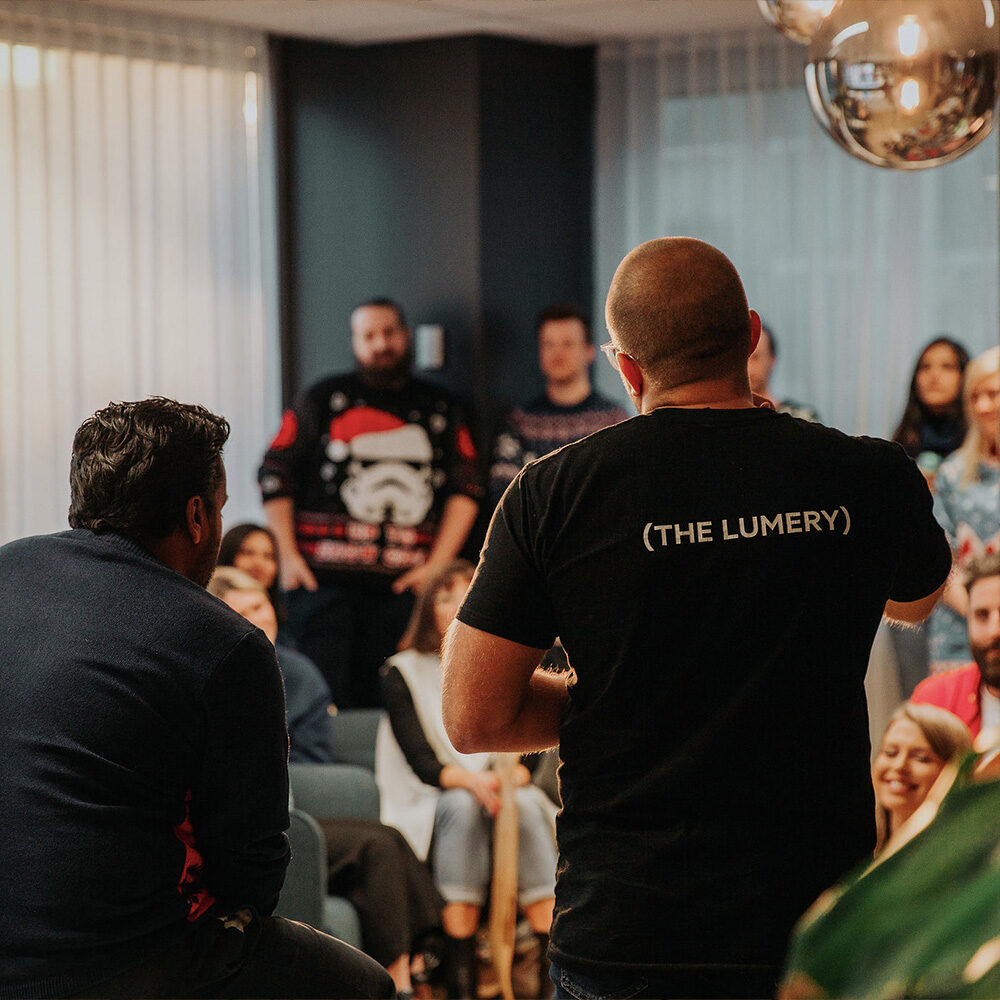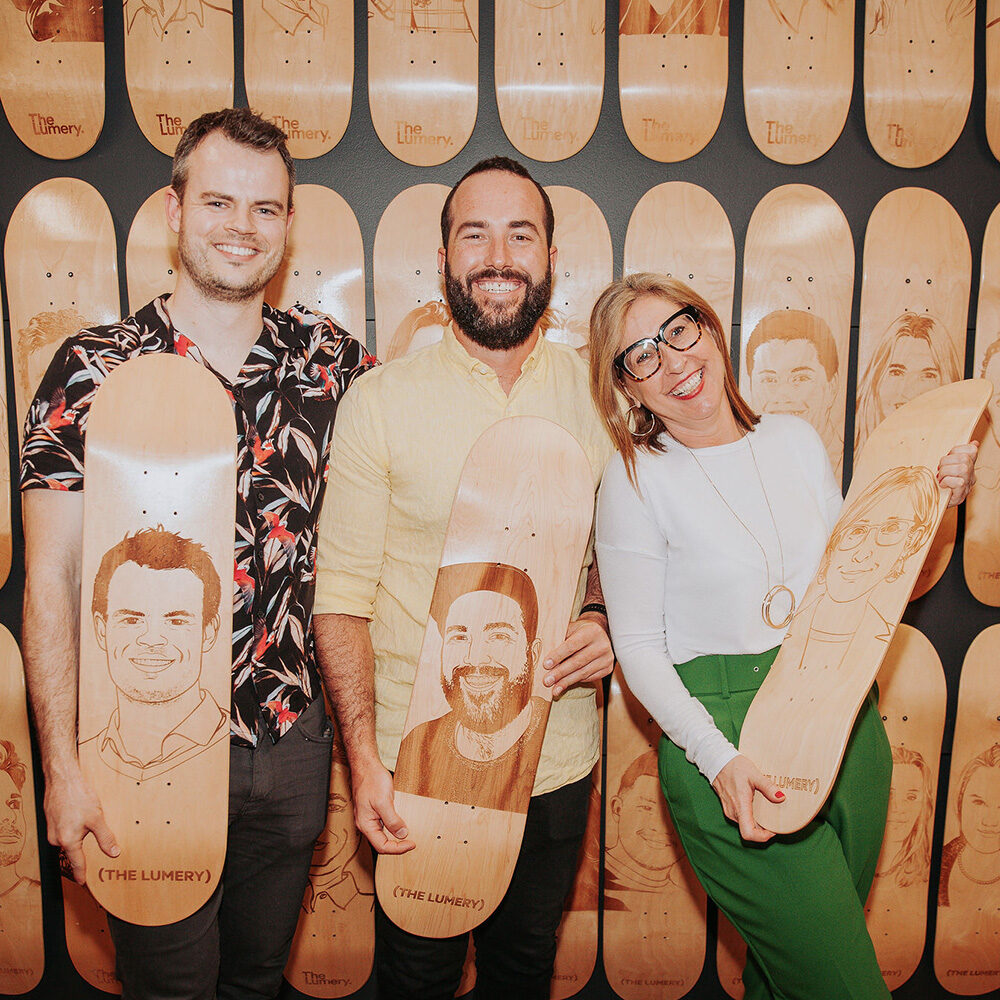ARTICLE / THE MAKING OF... SERIES
The making of...
The Lumery.
Further to our live event at RMIT Activator with Raj Kumar, Co-Founder & CEO of The Lumery, this week we share Raj’s thoughts about all things MarTech, as well as what it’s like to champion a category that is more concerned with selling you software rather than helping to actually deliver on their business strategy.
Series
The making of... Series
Tags
Entrepreneurial
Start-up
Welcome to The making of… blog series. To start, can you give us a brief background about you and any other founders?
Hello, I’m Rajan Kumar, Co-Founder & CEO of The Lumery. I have three fellow co-founders – Ben Fettes, Alastair Johnson & Simon O'Day. We've all worked with each prior to starting The Lumery and operated in the MarTech / SaaS / Technology vendor landscape for quite some time.
With four founders and experience in technology in some way shape or form, how did you come to the conclusion that you should start a business?
During our years working on the tech side and seeing the rapid rise - and complexity - of the marketing technology landscape, we saw lots of brands struggling to keep up, get the most out of their investments, and actually deliver on their strategy. But why was this occurring? You could literally put two brands side by side – give them the same tech – but have two very different outcomes. It's kind of like giving two people PowerPoint and saying create me a deck... what's the variable? People, right?
In a similar way, our view was these challenges occur in businesses because the technology was almost the easiest part of the problem to solve - the harder bit was all of the capability around the tech.
We put our brand side hats on (e.g. CMO) and asked ourselves if we needed help – who would we call? And we honestly felt there was just a complete lack of expertise and specialisation in this space – which is today a $350B+ industry.
The Lumery started to fill this space as a modern consulting/agency outfit – data and technology at the core - focused on delivering marketing and customer initiatives. Passionate about bringing clarity to the complex and helping brands deliver sustainable growth in a modern data and digital fuelled world. Connecting the transformation agenda driven by consultancies, with deep expertise of technology often only found in product teams based overseas, with an agency style delivery model but clear on what it does and importantly what it doesn't do.

Co-Founders Rajan Kumar, Ben Fettes, Alastair Johnson & Simon O'Day.
Research? What research did you do to arrive at what you've got now? How did you test your product-market fit?
Lots of qualitative research – speaking to brands, business leaders, education groups, technology vendors – all the key players in the landscape. Market review as to who was doing what – who was successful, and why. Where the gaps were.
We then took the idea of The Lumery and its specialisation to a smaller group of trusted individuals who worked on the brand side. I.e. the customers we wanted The Lumery to work with.
Behind that, there was a lot of planning using tools like lean canvases, business plans, marketing plans etc. I have to be honest though, we moved so fast from planning to launch that we didn't have time to set that stuff in stone – which I don't think was a bad thing.


With all good intentions and theoretically knowing what needed to be done, what were the first iterations of The Lumery look like?
Tactical – focused on the core problems our first sets of customers were looking to solve. We didn't have a whole go-market service strategy outside of being clear we wanted to provide an offering that spanned Consulting Advisory, Customer Strategy and Technology Execution.
Our first set of clients spanned data analysis, experimentation / CRO delivery, email marketing and some business/transformation consulting.
Really when I think about it, the iteration of our original set of services was specific to what our customers wanted – we designed around them. Of course, we had a few things we knew we wanted to do – e.g. a service that stands to this day is what we call a 'capability review' assessing the strengths, gaps, maturity etc. of a brand's MarTech ecosystem. Australia Post was actually our very first customer of this service.
Having Australian Post as a foundation client would have been a huge deal for a start-up. Can you tell us how this impacted your initial funding?
We took massive pay cuts, set some timeframes and went hard at winning business. We didn't have external funding and never took on debt – never had to this day. Being a healthy, profitable business is something we wore as a badge of honour. We put it on the line and we were fortunate that our proposition landed with some of the biggest brands in the country very early on.
With a foundation client and an income sorted can you tell us a little about your early branding and then the rebranding thereafter?
Well, the first iteration of the brand was heavily tied to the name - The Lumery. Which was derived from luminary, light, luminescent etc. So our first set of 'branding' looked like we sold lights (lol). I've always been passionate about our brand though so even early on I tried to get to an aesthetic that was clean, simple and different to what else was in the market.
It wasn't until I met Simon and Hunter though that I really understood the purpose of branding. At the time I wanted to redo our logo and website, get a style guide etc. and I spoke to a few agencies who were keen to do the work. Then I met Simon. He was the only one who asked ‘What's the problem? Why do you have a brand problem if you're growing 200%?’ I was like, ‘Right, this guy is interesting’.
Hunter then set us down a path of looking at our brand as a part of our strategic positioning, our story, our voice, our tone, and what makes us - us. The visual representation of that will constantly be iterated upon but the strategic brand positioning is what I'm proud of. Bringing clarity to the complex was derived from our brand work – up until that point, our purpose wasn't articulated very well.
We know that the transition from start-up to scale-up is always difficult. However, in this instance, it seems like you guys are bucking the trend. How are you building awareness for the brand?
Our logo (the brackets) was chosen because as a consultancy we represent people and we stand next to and around those people. Our customers and our staff primarily. So when we think about awareness – highlighting the success of our customers and the awesomeness of our people is a constant - our LinkedIn is full of it.
We pride ourselves on being an authority in this space – it's not enough for us to deliver great work, we have to set the benchmark. So we do a lot of thought leadership, we partner with universities, we write white papers – we are truly living our purpose and proposition. We scale the brand by living up to it I guess.
Tactically, we spend the bulk of our marketing dollars on content and event partnerships.

It goes without saying that you need to be smart with your marketing spend. Sticking with what works and being single-minded in your approach is always key. So what about your future challenges? What would you say the biggest challenge or challenges are moving forward?
Scaling our business is always a big challenge. From 4-20 – then to 50, 70 odd and now we’re about 100 people strong. We're about to go through that next period of growth and so we need to ensure we keep our excellence at the level we expect, build appropriate processes and not lose any of our nimbleness or creativity.
We're at a point now where the next 3-5 year plan is being created. The last few years have been dominated by COVID, so a challenge but a huge opportunity is thinking about what The Lumery can be and should be based on our success to date. I'm a growth-orientated CEO so I'm focused on what we can be – but that can't hurt our core and needs to build on our strengths.
The evolution of technology and our space means things move quickly – eg. AI and the use of tools like ChatGPT. One, we need to be at the forefront to provide our customers with a service but also we need to constantly think about things like in relation to the evolution of services businesses.
There’s been a lot of great learning here for any founder or founders either starting up or running a business. However, just to finish... knowing what you know now, what advice would you give another entrepreneur who is embarking on their own startup journey?
I was lucky enough to have co-founders for this journey – if you don't have those, make sure you surround yourself with some peers or mentors you can rely on for advice and guidance. Additionally, make sure you have access to people who have done it. The number of people who simply gave me risks, fear, and the "watch-outs" - who haven't actually gone through this journey themselves were crazy. Most people I spoke to and continue to speak to who are actually founders often say things like "what if", "why can't you", and "keep going".
I also think a lot of people are waiting for the perfect time to start their business – I'm not sure there is one. If it's all you think about – start.


